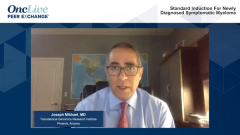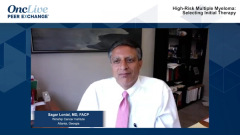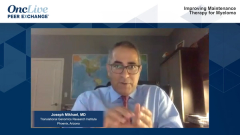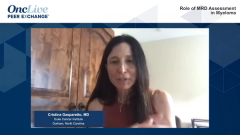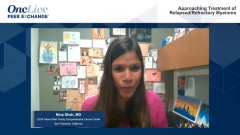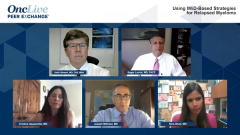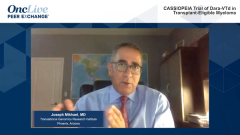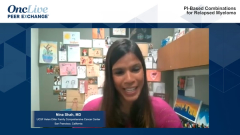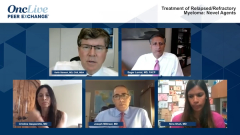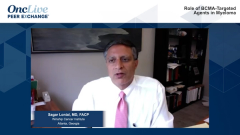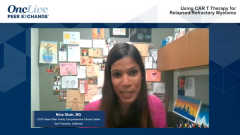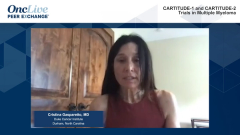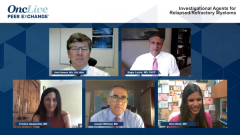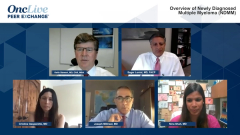
CASSIOPEIA Trial of Dara-VTd in Transplant-Eligible Myeloma
Joseph Mikhael, MD, reviews updated results presented at the 2021 ASCO annual meeting of the phase 3 CASSIOPEIA trial for NDMM, and Nina Shah, MD, comments on how the data may inform the addition of daratumumab to triplet therapy at relapse.
Episodes in this series

Keith Stewart, MD, ChB, MBA: Joe, you mentioned that there are updated results in the CASSIOPEIA trial. I wonder if, for our audience, you could describe that a bit because it becomes relevant here, following up on Sagar’s point.
Joseph Mikhael, MD: Absolutely. It becomes relevant in one way and then, perhaps, not so much another way because CASSIOPEIA uses thalidomide. This was a study that was comparing VTd, or bortezomib, thalidomide, dexamethasone—which is a standard of care in many European countries and particularly France—to giving daratumumab plus VTd [bortezomib, thalidomide, dexamethasone] in induction. That initial study lead to its approval in Europe and the US. Adding daratumumab to VTd [bortezomib, thalidomide, dexamethasone] clearly deepened response and had an impact on the progression-free survival. But there was a second randomization where people received either daratumumab maintenance, with a very interesting scheduling of once every 8 weeks, vs placebo. So, whether you were in the control arm of VTd [bortezomib, thalidomide, dexamethasone] alone or in the intervention arm of DVTd [daratumumab, bortezomib, thalidomide, dexamethasone], you could be randomized to both. Some people ended up never receiving daratumumab, and some people ended up having daratumumab in the front line and not in maintenance. The bottom line from what Philippe] Moreau, MD, presented was that overall, daratumumab maintenance was better than placebo, and it prolonged progression-free survival. However, if you were in the group that had daratumumab with VTd [bortezomib, thalidomide, dexamethasone] in the front line, it didn’t look like adding daratumumab in the maintenance therapy once every 8 weeks added very much. Now, the caveat is that we still need some time to figure it out. But I think, Keith, it brings up the question of how much do you need? As Sagar indicated in their strategy, they gave it in induction, but not so much in maintenance. I think, knowing that we can do well with lenalidomidein maintenance, as we do in the US, it makes us question how long we need to give daratumumab. That was the essential result of the CASSIOPEIA study.
Keith Stewart, MD, ChB, MBA: That’s where I was going with this, because with daratumumab, if you treat until progression, then you’ve just told us, Joe, isatuximab doesn’t work very well in that situation. Nina, what’s your strategy with daratumumab at relapse?
Nina Shah, MD: It’s very similar to what everyone said, obviously. If the person has progressed on daratumumab, then I tend not to use it again, aside from a clinical trial, and we do have something evaluating that. But for example, the Emory group uses dara-VRd [daratumumab, bortezomib, lenalidomide, dexamethasone] up front for 4 cycles or for induction, and then stops. The person isn’t daratumumab refractory, just like they’re not bortezomib refractory. In that case, I think it’s worth reusing.
Keith Stewart, MD, ChB, MBA: That’s where I was going with that.
Transcript Edited for Clarity


